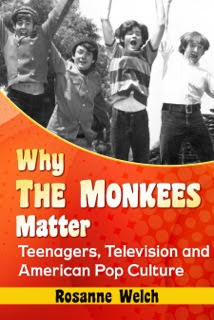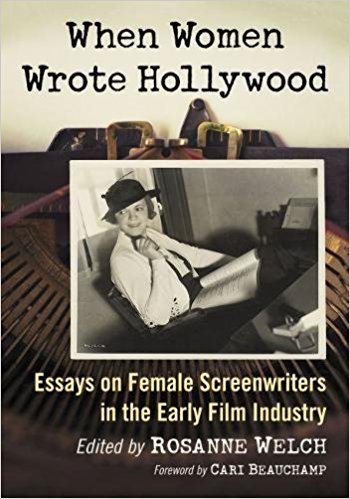Read Her Career Outlasted the Hays Code: Kathryn Scola
Read about more women from early Hollywood
Podcast: Play in new window | Download
Subscribe: RSS
On Screenwriting and Media with Dr. Rosanne Welch
Writing, Film, Television and More!
Born just 4 years after the end of the Civil War in Boonville, Missouri, the scripts Julia Crawford Ivers wrote (and sometimes directed) often tackled issues of prejudice. After the war, her family emigrated to Los Angeles. As with many female creatives in this era, Ivers used her screenplays to highlight women’s issues from forced marriage to domestic abuse to prejudice.
Read Julia Crawford Ivers: From Rich Widow to Writer-Director
Read about more women from early Hollywood
Podcast: Play in new window | Download
Subscribe: RSS
Born on Christmas Day in 1876 in Massachusetts, Dix and her family lived in various cities around the historic state until she moved to Cambridge, Massachusetts to study English and History at Radcliffe College. There she became the first female to be granted the Sohier Literary Prize, for the best thesis of a Harvard or Radcliffe student. From there it seemed a quick move into the world of writing.
Dix began with books about her favorite subject – the history that surrounded her in Massachusetts. In 1899, at the age of 23, she published Soldier Rigdale: How He Sailed in the Mayflower and How He Served Miles Standish. Her first play, A Rose of Plymouth Town ran for a month in 1902, followed by The Road to Yesterday, which ran for 8 months in 1907. Altogether Dix wrote 18 books and 5 plays before moving into the new world of film.
Read Meet Beulah Marie Dix: Award-Winning Scholar and Anti-War Novelist Turned Screenwriter
Read about more women from early Hollywood
Podcast: Play in new window | Download
Subscribe: RSS
The surname DeMille (or de Mille) brings up thoughts of the famous line from Billy Wilder and Raymond Chandler’s Sunset Boulevard “Mr. de Mille, I’m ready for my close up” which references silent screen director Cecil. Perhaps people remember his brother, William, who started as a playwright and became a Hollywood director and joined 3rd wife Clara Beranger in founding the film school at the University of Southern California. And sometimes the surname conjures of memories of Tony Award-winning choreographer Agnes de Mille (daughter of William/granddaughter of Beatrice). From now on it should bring up the writer, producer and mentor who worked frequently in both Broadway and Hollywood – Beatrice DeMille. (From here on out we will call her Beatrice to avoid confusion).
Read Writer, Producer, Agent, and Mentor (And Mom to the DeMille Boys)
Read about more women from early Hollywood
Podcast: Play in new window | Download
Subscribe: RSS
Save 35% on McFarland Books – One of My Publishers is offering a 35% Discount on Their Catalog This Week!
Along with your other holiday shopping over this Thanksgiving weekend, I’m happy to pass along this lovely discount from McFarland Publishing, the fine folks who published two of my favorite books:
Why The Monkees Matter: Teenagers, Television and American Pop Culture

AND
When Women Wrote Hollywood: Essays on Female Screenwriters in the Early Film Industry

Direct from the McFarland site, From now through December 2, they are offering a full 35% off ALL of their titles with coupon code HOLIDAY24 at checkout.
See the entire McFarland Catalog
You can buy one of my books — or any other cool pop culture book you find — for yourself or anyone else on your gift list this year.
Happy Holidays!
Since there’s been so much talk this week about mothers being proud of their highly accomplished children it’s a wonderful week to share the link to the latest Writers Guild Foundation panel co-sponsored by the Stephens College MFA in TV and Screenwriting covering the topic of “Writing Females in Leadership Roles”.
Moderated by our Executive Director Dr. Rosanne Welch the panel includes three writers from shows that celebrate female leaders from the real-life 23-year-old Miep Gies who hid Anne Frank’s family to real-life First Ladies Eleanor Roosevelt, Michelle Obama, and Betty Ford to the fictional female leaders of Station 19. Many thanks to Joan Rater (A Small Light), Zora Bikangaga (The First Lady), and especially to our Stephens College MFA alum Alexandra Fernandez (Station 19) for joining us to discuss everything from our childhood role models of female leadership (mostly moms and aunties) to the traits we expect to see in our leaders, to the nuts and bolts of working in a television writers room.